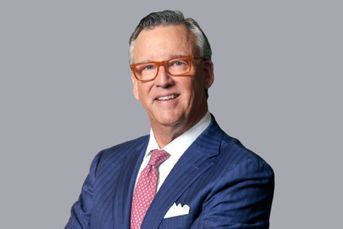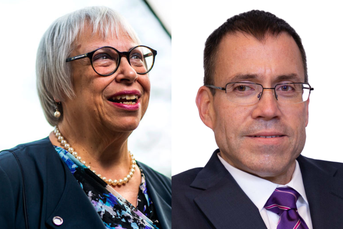Pandemic side effect: Rampant burnout

People are overworked, and burnout is causing 'brain fog,' exhaustion, cynicism and other issues, Jennifer Moss said at Schwab Impact.
If you find yourself mentally checked out at 2 p.m. on a weekday, you’re not alone.
Burnout, a social side effect of the pandemic, is affecting workers from every walk of life, and it’s not a trend that employers should ignore, said Jennifer Moss, an author and consultant who specializes on the subject.
“A big part of what we felt this last year … we’re starting to mentally distance and disconnect from our work, and that is leading to burnout,” Moss said Tuesday during a presentation at the Schwab Impact conference.
The symptoms of burnout can include “brain fog,” exhaustion, cynicism, a lack of engagement and less attention to personal hygiene, Moss said. The condition is primarily caused by being overworked. But other factors also contribute, such as loneliness, a skillset that’s not a good match for a job, insufficient rewards, a lack of control and a lack of fairness, Moss said.
“Cynicism is a red flag. That is when we feel a hopelessness,” she said. “We tend to misdiagnose chronic stress and burnout as underperformance.”
A recent survey of workers from 46 different countries found that 89% of people felt their work lives were getting worse during the pandemic, 85% experienced a decline in well-being, 67% felt they couldn’t discuss mental health at work, and 56% saw the demands of their job increase, Moss said. Just 2% of workers rated their well-being as excellent.
As the world shifted to remote work, the frequency of meetings increased, she noted.
“We’re no longer in an emergency … We’ve been doing this for 20 months,” she said. “We need to do more walk-and-talks. We are so sedentary. We need to get up.”
However, managers might want to consider adding one meeting a week that is simply a check-in with their teams, asking about the week’s high and low points and how workers are feeling, Moss said.
“We need to make sure that this meeting is consistent. It needs to be … from now until eternity,” she said. “Trust is built through consistency.”
Managers should ask what they can do to make their teams’ lives easier and encourage them to take time off for self-care, she said.
The average workday has increased by 48 minutes during the pandemic, Moss said, but teams that can learn to communicate better and increase efficiencies can potentially decrease their workloads by more than 20%.
Further, the effects of loneliness should not be underestimated. People who live alone have been most affected by that during the pandemic, and in the survey, they were the least likely to say they felt healthy, she said.
On average, people say “I’m fine” 14 times a week, but they actually mean it less than 20% of the time, Moss said.
“We only see a small picture into people’s lives,” she said of virtual interactions. “We underestimate or misinterpret how people are actually doing.”
As people begin to head back into offices, many will have social anxiety — and team leaders and coworkers should be empathetic about that.
“We often see empathy as a soft skill. It is as extremely hard skill to build,” Moss said. “We need to practice it to get good at it.”
A separate report Tuesday from wellness firm Vitality found that younger workers are more likely to feel disconnected and have the highest probability of leaving their jobs.
That is partly due to a perception that they could spend less time with family and friends in the remote work environment, while more senior-level employees were able to dedicate more time to friends and family, the group reported.
Surprisingly, younger workers have also felt overwhelmed by new systems and technology, according to Vitality.
“The result is that younger generations are more likely to leave their jobs, with 27% of Gen [Zers] and 30% of millennials moderately to extremely likely to leave their jobs in the next 6-12 months vs. just 15% of boomers,” the report stated.
Niche advisers should demonstrate their expertise
Learn more about reprints and licensing for this article.








